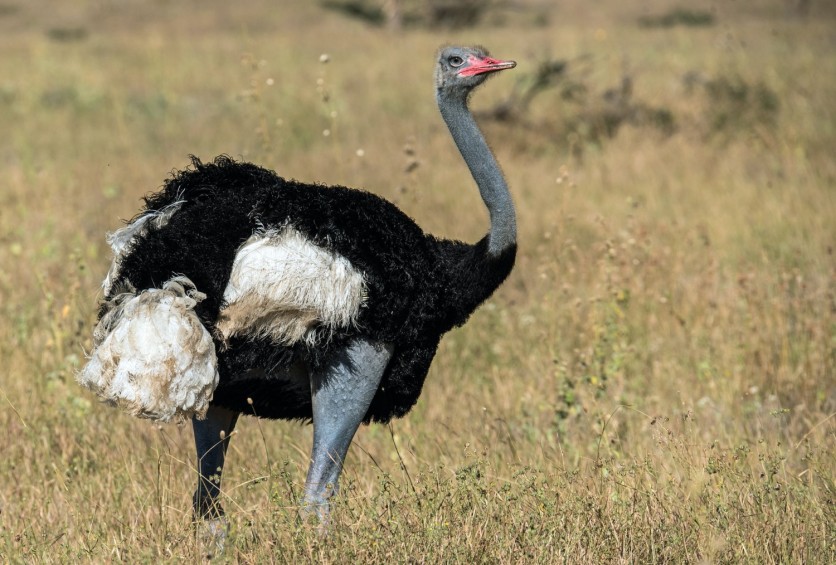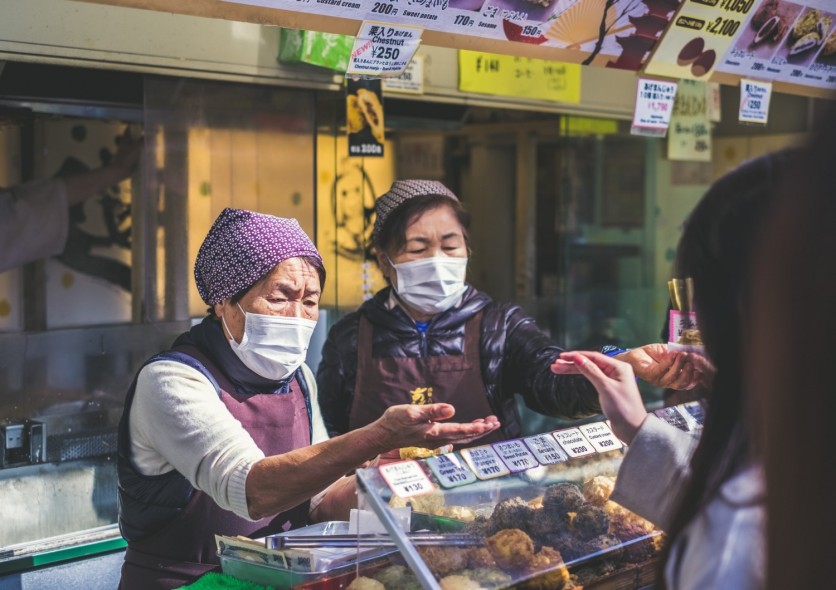Some COVID-19 masks are actually fancy in nature, yet people frequently go after their protective capabilities against the virus. Recently, researchers from Kyoto Prefectural University created a face mask that will glow when exposed to UV light.
According to a group of Japanese scientists, the surgical mask can detect traces of coronavirus quickly and less expensively. What's worth noting here is the fact that they use antibodies from ostrich eggs to make this possible.
Antibodies in Ostrich Eggs

According to a report by E&T, project leader Yasuhiro Tsukamoto said that his team is always interested in doing studies about modern birds and dinosaurs.
Because they all want to study the same subject, they decided to come up with adding ostriches as part of the future experiments since they resemble some features similar to the dinosaurs.
There was a time that Tsukamoto used to take care of nearly 500 ostriches in the valleys where each female could produce 50 to 100 eggs annually. At that period, he spotted a strange difference of ostriches from other flocked animals.
Diving deeper into the study, Tsukamoto noticed an interesting fact about these animals. The mother ostriches pass their antibodies to their babies to boost their immunity.
Furthermore, the lead researcher came up with the idea of using these antibodies for another undertaking. Following their discovery about the resilience of ostrich antibodies, his team started to incorporate them into human medicines.
They arrived in antibody customization by injecting them into the females who have inactive bacteria. Later, they would extract it to be utilized in another study.
COVID-19 experts continue to find an effective treatment for the emerging variants, and they could cost a lot of money. To begin, Tsukamoto explored a different approach of using antibodies without harming either the offspring or the mother ostrich.
Read also: Study Reveals Proper Double-Masking Fit Works Against COVID-19: How to Double-Mask and Check its Fit
Using Ostrich Egg Antibodies to Detect Coronavirus

Back in February, the Japanese researchers began to experiment injecting an inactive SARS-CoV-2 into the female ostriches and extracting antibodies from their eggs. After that, they moved forward in creating a special mask filter that can directly detect the presence of a viral infection.
The experts made use of a fluorescent dye with coronavirus antibodies that were extracted from the ostrich eggs. When it is sprayed in the mask filter and it glows green, it means that there is a COVID-19 exposure in a patient, according to Hype Beast.
Tsukamoto selected 32 COVID-19 patients for the test to see if it actually works. For more than 10 days, they used UV light-exposed masks. They found out that the glow in the mask becomes fainter as the viral potency drops over time.
For instance, the Kyoto Prefectural University president detected that he was COVID-19 positive upon wearing this glowing mask. To double-check its effectiveness, he underwent a PCR test which verified his condition as true.
By next year, the team eyes selling this COVID-19 mask to the public if the government approves it. They are also preparing to conduct another series of tests which will involve 150 participants.
"We can mass-produce antibodies from ostriches at a low cost. In the future, I want to make this into an easy testing kit that anyone can use," Tsukamoto said.
In another report by Tech Times, US researchers developed a prototype face mask that could not only protect a person from the coronavirus, but also it could detect if he or she has it.
Elsewhere, the Apple store in Texas shut down amid the COVID-19 outbreak because of infected employees. It will reopen on Monday, Dec. 13.
This article is owned by Tech Times
Written by Joseph Henry
ⓒ 2025 TECHTIMES.com All rights reserved. Do not reproduce without permission.




